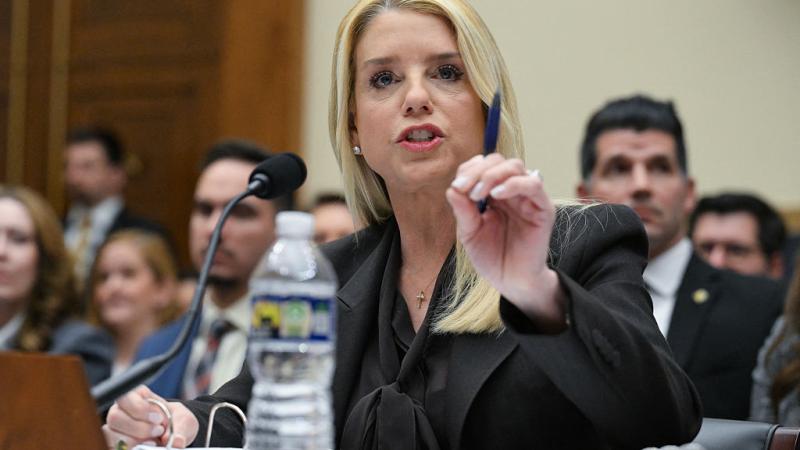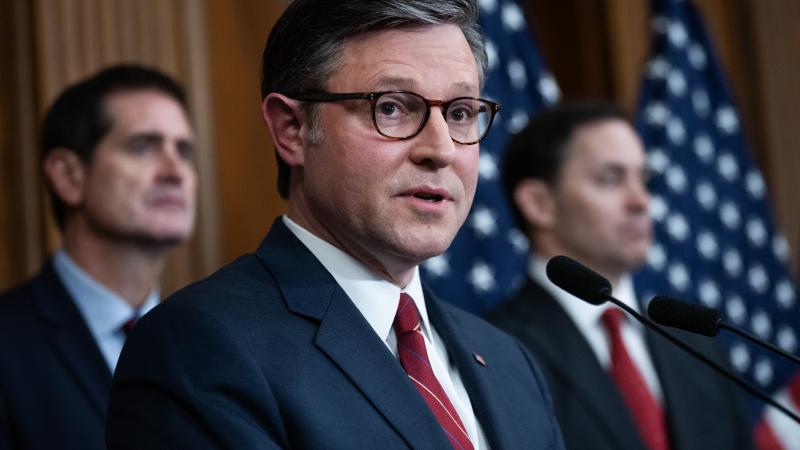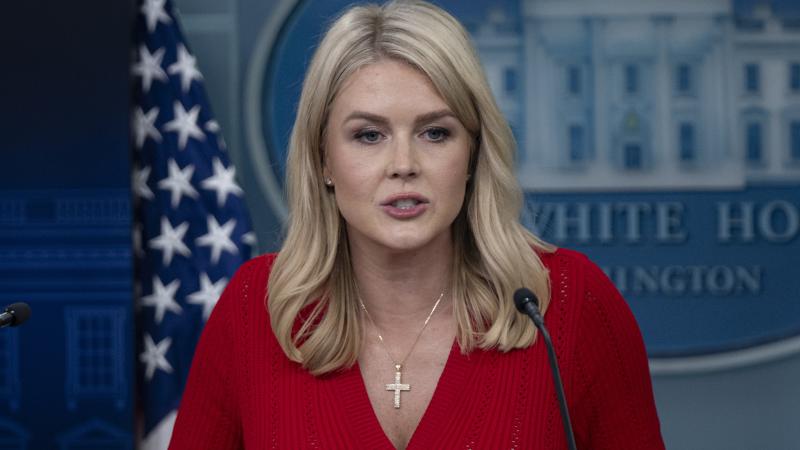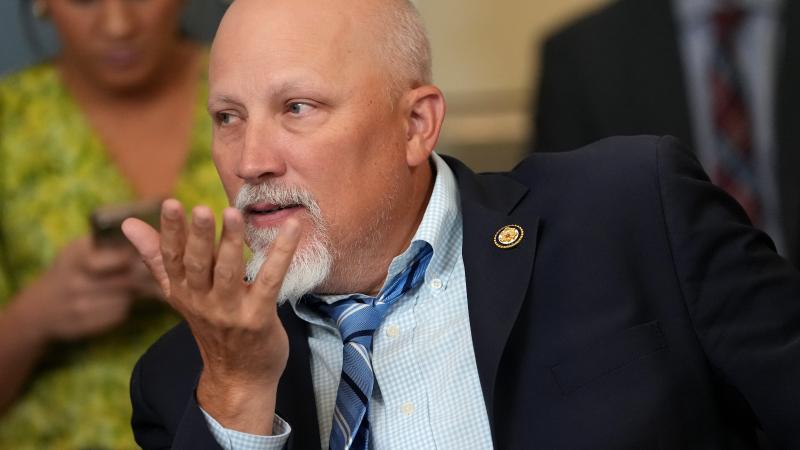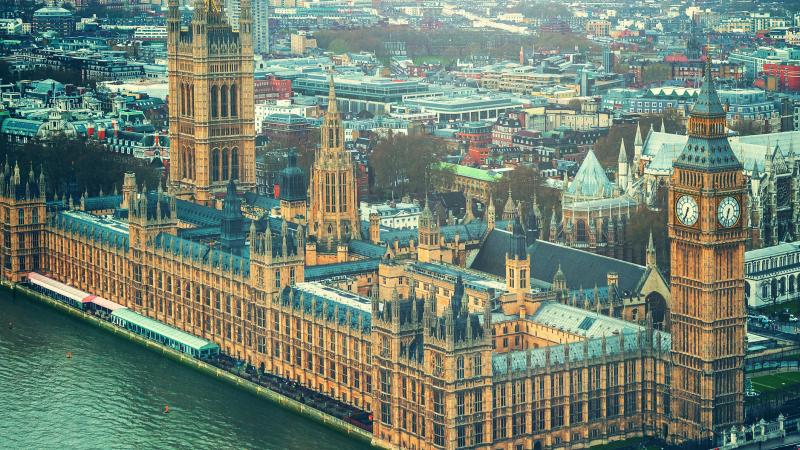Ways and Means chairman promises Trump tax cuts renewal, relief for tip workers and seniors
Smith will likely play a key role in shaping the legislative agenda for Republicans as they work to implement key economic provisions, especially tax and spending cuts.
With President Donald Trump back in the White House and Republicans in the majority of both chambers, the GOP’s top leadership is gearing up for a series of battles to implement his key campaign promises. One powerful House chairman says he has a vision for victory.
“Republicans have control of the White House, the House and the Senate, because of President Trump,” House Ways and Means Committee Chairman Jason Smith said Friday on the Just the News, No Noise television show. “We would not have any of those if it was not for what he campaigned on, what he pushed for.”
The House Ways and Means Committee is the body essentially in charge of all the revenues coming into the country, he added. “And so we're focused on, what are those policies that can be pro-growth, that can bring in those revenues, that can reduce deficit spending?”
Smith will likely play a key role in shaping the legislative agenda for Republicans as they work to implement those key economic provisions, especially tax and spending cuts.
Extending the Trump tax cuts
Among the top priorities for the chamber will be the extension of the Trump tax cuts from the 2017 Tax Cuts and Jobs Act. Those cuts included doubling of the standard deduction, adjustments to individual income tax rates, and the lowering of the corporate income tax to 21%.
Their extension is expected to trigger a battle over the debt limit. Trump previously attempted to address that complication during the transition as Congress debated a continuing resolution. A debt limit suspension didn’t make it into the final package. Smith, for his part, warned of the impact of delaying an extension.
“We have to extend and make permanent President Trump's tax cuts that will be expiring at the end of this year,” he said. “If we don't, every single American will face the highest tax increase in the history of our country, and failure is not an option. We will not allow that to happen.”
He went on to excoriate his colleagues on the other side of the aisle who preferred to address the matter in December, saying “[t]here's 26 million small businesses right now that's making the decisions of how to invest in their companies worried, do they have a tax rate of 43.4% or a tax rate of 23.4%? Congress needs to do their job.”
No tax on tips, Social Security, and others
Trump also made a number of other income tax-related proposals, including ending taxation on tips and social security income, which Smith indicated would be among the chamber’s top priorities.
“We are the party of the working class. No tax on tips is in the Republican Party platform,” Smith said.
Smith acknowledged that the procedural rules in Congress would make it difficult for them to end taxation on social security income, but was optimistic that the GOP could provide some form of tax relief for seniors in the meantime.
To address Social Security, Smith contended that any significant changes would necessarily be “bipartisan” because “partisan changes will never, ever last.” He further highlighted projections that the program will become insolvent by 2032 or 2033.
Wrestling with the debt
Trump and Republicans more broadly have campaigned extensively on addressing the national debt, which has increased dramatically in recent years, in part due to bipartisan COVID-19 spending packages. With Republicans pledging tax cuts, Smith insisted that the only other option to address the deficit would be to boost the nation’s economy overall.
“We need to increase our GDP. If you increase our GDP to 3% that's not a huge number,” he said. “If you increase that by 3% you'll bring in more than $3 trillion of revenues into the coffers that will help lower the deficits.”
Such efforts will not come at the expense of spending cuts, he insisted, highlighting the importance of reducing waste in the mandatory and discretionary spending categories.
“Over the last 50 years, revenues coming into the country have consistently stayed flat at 17% of GDP,” Smith said. “However, spending has typically been about 20% of GDP[...], in the last five years, we have seen spending of a percent of GDP being 26% that's why you're seeing record deficits.”
The disparity between revenue and expenditures led Smith to insist “[w]e also have to cut some serious spending.” Among his top targets for cuts are ongoing COVID-19-era programs that he said would address “at least over $100 billion” if Congress pulled funding.
Trade and manufacturing
Trump himself has promised to implement wide-ranging tariffs on goods from foreign adversaries and allies alike and to renegotiate agreements with those powers to help stimulate domestic production growth and the repatriation of manufacturing jobs.
“We have to make sure that our country is secured with our supply chains when it comes to food, when it comes to energy, when it comes to health care, we need to be secure,” he warned. “If we're not, that means our country is dependent on another nation, and we need to help bring these supply chains back to the United States.”
“And those are the policies that we will be pushing and advocating for in this tax bill, but also in the trade policies moving forward,” Smith said. “We need to make sure American manufacturers, American workers, American farmers are first, not foreign manufacturers, foreign farmers, and foreign workers.”

